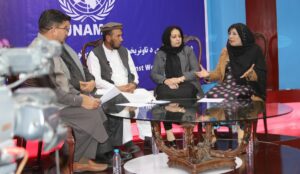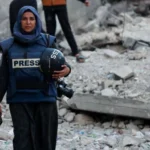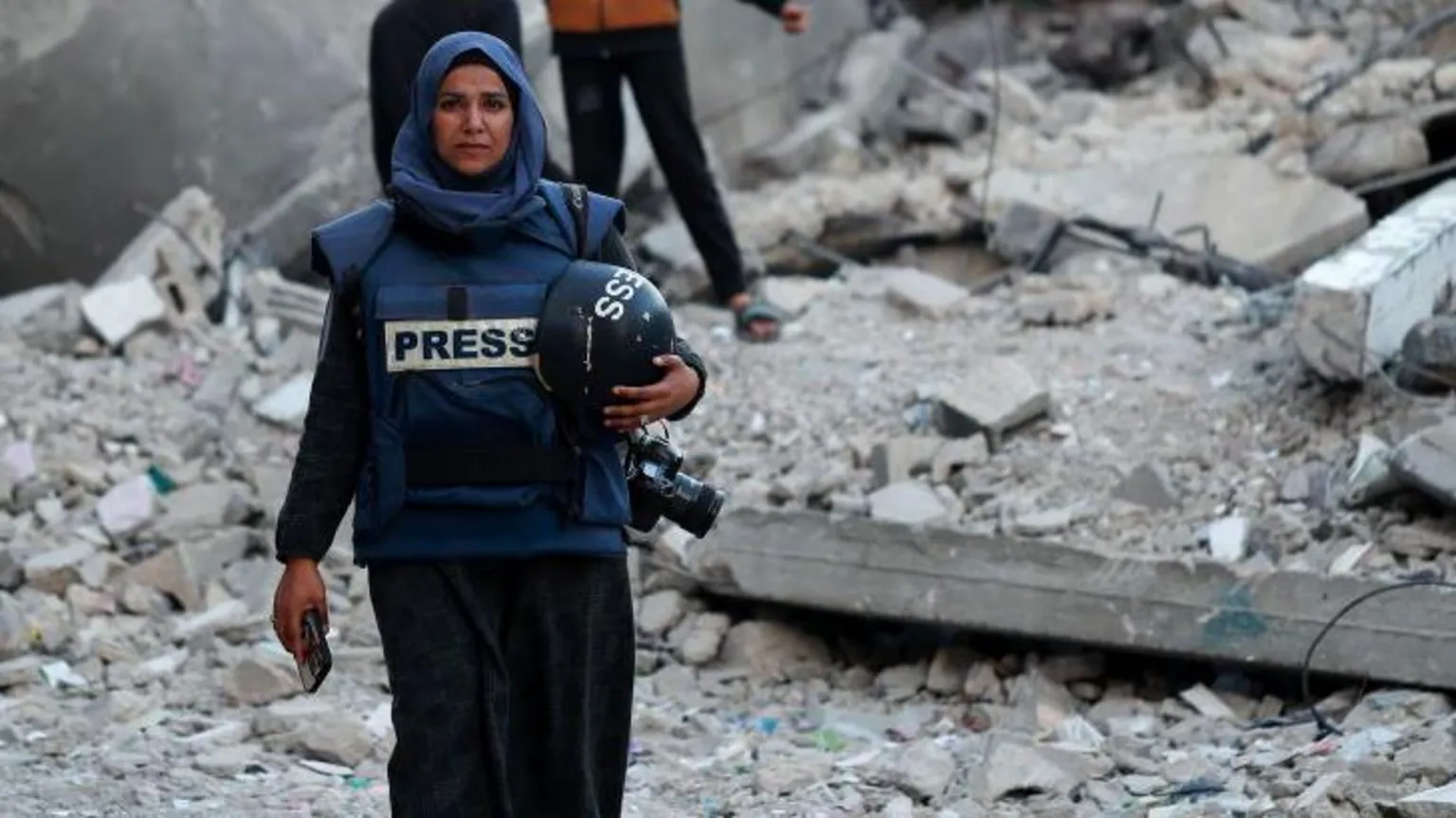 Hundreds of Afghans gathered at UN-backed events across the country to decry violence against women and girls, and to strategize on practical steps to put an end to harmful traditional practices in Afghanistan.
Hundreds of Afghans gathered at UN-backed events across the country to decry violence against women and girls, and to strategize on practical steps to put an end to harmful traditional practices in Afghanistan.
The events, leading up to the International Day for the Elimination of Violence against Women on 25 November and the start of the UN’s campaign of 16 days of activism against gender-based violence, drew hundreds of religious leaders, civil society members, human rights activists, legal professionals and government officials.
Together, participants in televised debates, radio programmes and other gatherings voiced their support for the human rights of women and discussed ways to raise awareness about the negative impact of harmful traditional practices on communities across the country.
During one of the events that was televised in Herat, participants underscored that harmful traditional practices – which include child marriage, forced marriage, the giving away of girls to settle disputes, forced isolation in the home and ‘honour’ killings – not only violate the rights of women and girls but also must have no place in Afghan society.
“Harmful traditions must be stopped,” said Wasi Saeedi, head of a women’s association in the western province. “We need a grassroots campaign, supported by religious and community leaders, to put an end to these bad traditions.”
At an event in the central province of Maydan Wardak, Habibullah Ahmadi, a gender officer in the provincial governor’s office, described how gender-based violence and discrimination continue to deter not only women’s development but also society’s.
“Gender-based discrimination prevents our society from having female doctors, female teachers and policewomen,” he said in a radio broadcast aired locally in the province.
In Jalalabad, the capital of the eastern province of Nangarhar, a panellist and women’s rights activist, Mastora Stanekzai, recommended in a televised broadcast that community education on the rights of women be considered critical in addressing gender-based violence.
“Unfortunately, violence against women is not seen as a crime in our communities,” said Stanekzai. “If men are taught that violence against women is a punishable crime, they will refrain from doing it.”
In other events across Afghanistan, participants expressed similar views, including in a televised programme in the eastern province of Kunar. “Lack of awareness about the rights of women is the biggest problem for many families,” said Sarajulhaq, an official in Kunar’s Department of Women’s Affairs.
Afghanistan has made strides in addressing women’s rights with legislation and in other areas, but much remains to be achieved as Afghan women continue face violence and discrimination. Many structural barriers – including poverty, inequality, illiteracy, harmful traditional practices and violent extremism – make women, especially those in remote provinces, especially susceptible to violence and abuse.
The UN maintains that alongside effective legal and institutional mechanisms for women’s access to justice, stopping violence against women requires an effort from everyone, not only acting but also speaking out against violence in homes, workplaces and social settings.
Events and activities for the 16 Days of Activism campaign, organized by UNAMA’s regional offices across the country, are scheduled to conclude on 10 December, International Human Rights Day.
UNAMA continues to work with advocacy groups and institutions – including religious leaders, youth groups, women’s groups and local media outlets – to create platforms, using radio, social media and television, to enable Afghans to engage in dialogue on pressing issues affecting their communities.
In accordance with its mandate as a political mission, UNAMA supports the Afghan people and government to achieve peace and stability. UNAMA backs conflict prevention and resolution, promoting inclusion and social cohesion, as well as strengthening regional cooperation. The Mission supports effective governance, promoting national ownership and accountable institutions that are built on respect for human rights.



